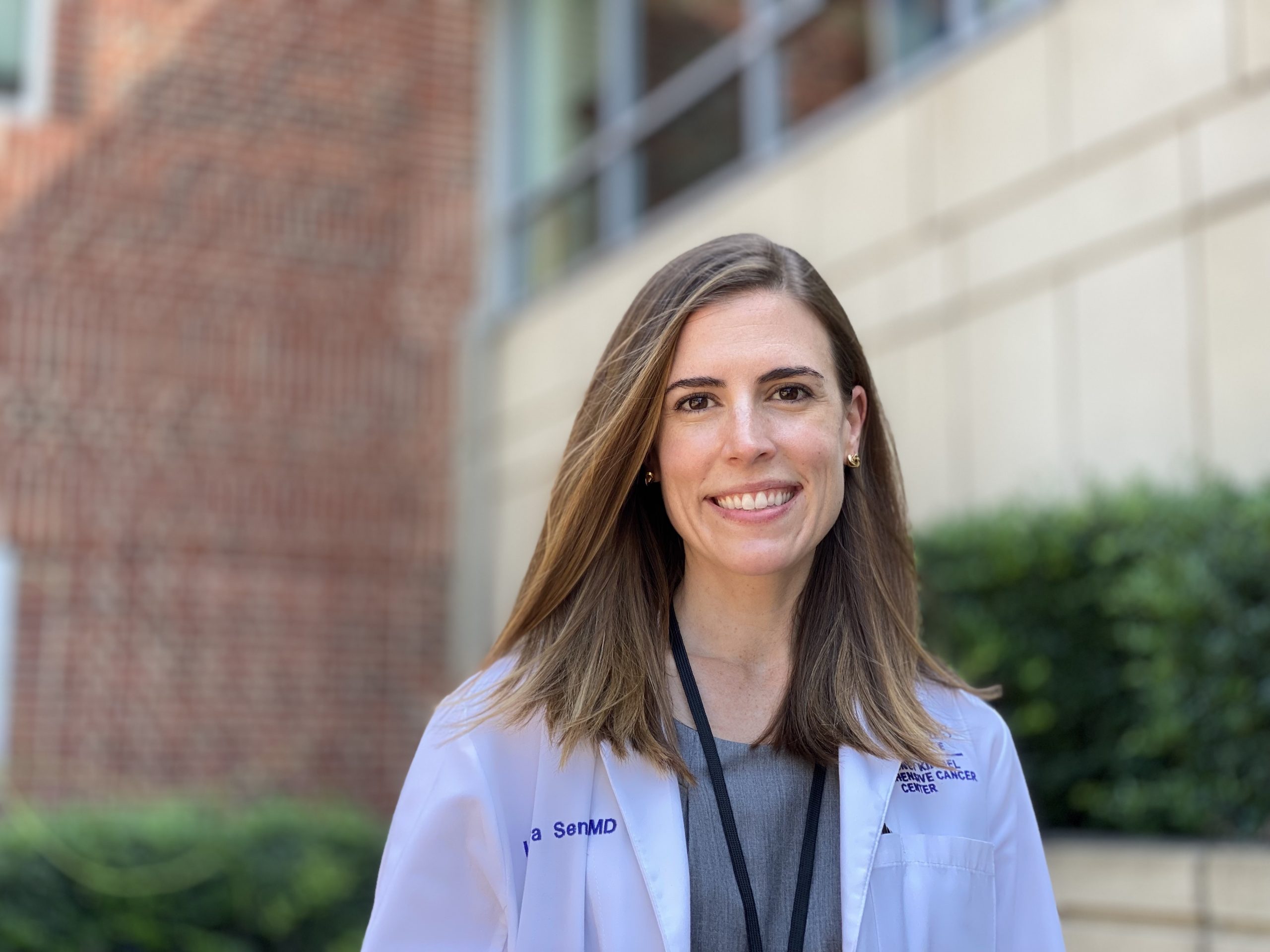Today, the Journal of Clinical Oncology - Oncology Practice published a research manuscript by Dr. Laura Sena, with co-Chief Hematology-Oncology fellow Dr. Arjun Gupta, entitled, “A trainee-led quality improvement project to improve fertility preservation counseling for persons with cancer.” Here, Dr. Sena answers some questions about that paper and their objective of providing improved counseling to patients with cancer about fertility preservation.
What was the inspiration for this work?
Laura Sena: We initiated this project due to several anecdotal experiences by hematology-oncology fellows with difficulty counseling and referring patients for fertility preservation prior to initiation of systemic therapy for cancer. It is well known that many of the therapies we administer can impair fertility, and counseling on this risk and methods of fertility preservation is essential to quality oncology care. Therefore, casual conversations among the fellows inspired us to collect data on the rate of counseling in outpatient oncology clinics to understand the scope of this perceived problem. Following IRB approval of this project, we reviewed charts and discussed experiences with patients who we perceived to be eligible for counseling and estimated that 37% of eligible patients were receiving appropriate counseling. This suggested to us that there was significant room for improvement.
Who contributed to this quality improvement project?
LS: This quality improvement project was led by hematology-oncology fellows, but would not have been successful without the assistance of many individuals and teams. In particular, this project was performed under the guidance of the 2020 ASCO Quality Training Program (QTP) with QTP coach Dr. Adam Binder from Thomas Jefferson University. Together with Dr. Binder, we assembled an inter-professional, multi-disciplinary team that included trainees, nurses and attending physicians in reproductive endocrinology and urology, social workers, a graphic art designer, and fellowship and cancer center leadership.
What was performed?
LS: To determine barriers to performing counseling on fertility preservation, we surveyed oncology faculty and reviewed current practice methods. The key barriers that emerged included oncologist uncertainty about how to counsel and how to refer patients for fertility preservation and the lack of a standardized referral system. We performed several interventions to counter these barriers including an Oncology Grand Rounds educational presentation, the creation of an EPIC “smart-set” order set, and the distribution of an educational pamphlet directed toward patients.
What was the result of your interventions?
LS: We measured the rate of counseling following these interventions and were delighted to determine that it was increased from 37% to 81%. We are hopeful that this means our project had a beneficial effect on patient care here at Johns Hopkins. Importantly, this project also served as a vehicle for education on quality improvement interventions for a large group of fellows. We are very thankful to the ASCO QTP for their part in this education.
What are the next steps?
LS: The next steps are to focus on sustainability. We are interested in sustaining both the improved rates of counseling on fertility preservation for our patients as well the focus of the fellowship curriculum on quality improvement projects.
